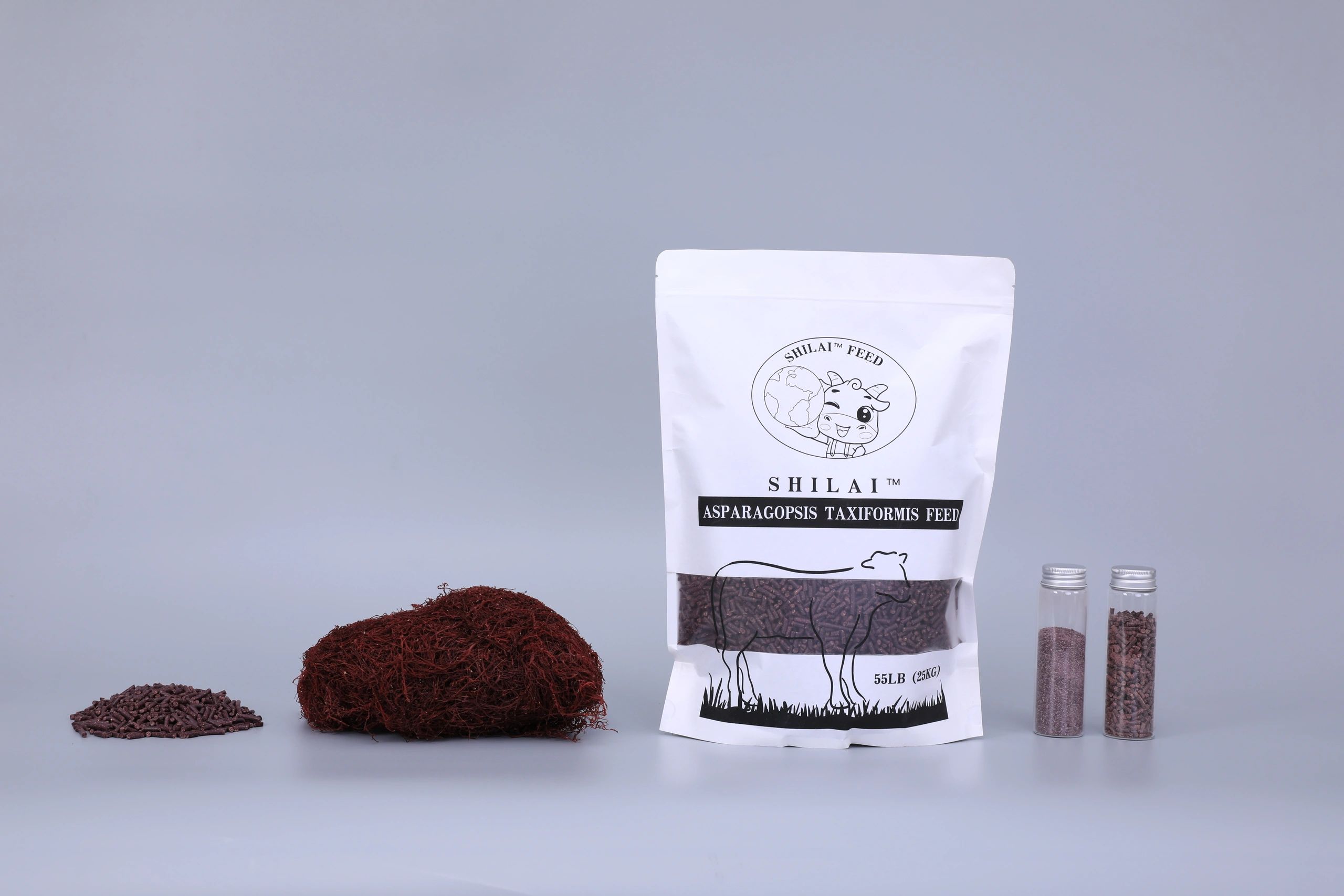Global farming activities are responsible for a large share of greenhouse gas outputs, driven mainly by animal production.
Methane is a powerful greenhouse gas that has a much higher warming potential than carbon dioxide, posing urgent climate risks.
Researchers are investigating Asparagopsis taxiformis, a red marine alga, as a potential breakthrough for reducing methane from ruminants.
The alga carries a bioactive agent that inhibits the rumen microbes responsible for methane, lowering emissions from animals.
Formulating feeds with Asparagopsis taxiformis has demonstrated favorable results in initial research, indicating potential to reduce agricultural emissions.
- The seaweed further supplies a set of advantageous outcomes that extend past methane mitigation.
- Improved animal health and well-being
- Possibility of new coastal agribusinesses and local employment
Further investigation and trials are still needed, yet Asparagopsis taxiformis shows major promise as a sustainable emissions reducer.
Unleashing the Benefits of Asparagopsis taxiformis Powder for Feed Applications
A powdered or concentrated form of Asparagopsis taxiformis has the potential to reshape animal feed approaches and outcomes.
The alga packs biological and nutritional characteristics that support better animal outcomes and farm results.
Incorporating A. taxiformis powder into feed blends has been shown to reduce methane emissions in trials while also supplying key micronutrients.
Ongoing research must address effective dosing strategies, production processes, and chronic safety/effectiveness considerations.
Asparagopsis taxiformis and the Next Era of Sustainable Animal Production
This red seaweed is gaining attention as an approach to address environmental problems tied to conventional animal agriculture.
Integrating the algae into feeds may allow producers to substantially reduce on-farm methane emissions and environmental impacts.
Scientific work suggests Asparagopsis can deliver both environmental and animal health/productivity advantages.
Further validation at scale and over time is required, yet the early science provides a compelling signal.
Mitigating Methane Emissions with Asparagopsis in Animal Diets

Research highlights Asparagopsis as a potential, effective way to minimize methane from ruminant animals.
Compounds in Asparagopsis act on rumen microorganisms to suppress methanogenesis and lower methane output.
- Experimental studies have reported large percentage reductions in methane when Asparagopsis is included in diets.
- The strategy of adding Asparagopsis to feed aligns with sustainable agricultural practices for emissions reduction.
- Farmers and producers are increasingly exploring the adoption of Asparagopsis in feeding programs.
Asparagopsis: Seaweed Fueling Sustainable Change in Animal Agriculture
An oceanic innovation is emerging as Asparagopsis taxiformis demonstrates potential to materially reduce methane from cattle and sheep.
- Trials that fed Asparagopsis to livestock documented marked methane reductions, pointing to strong environmental upside.
- This breakthrough could help reconcile food production with sustainability by lowering emissions while supporting nutrition needs.

As decarbonization efforts accelerate, Asparagopsis represents a distinctive marine-based pathway to reduce agricultural methane.
Optimizing Methane-Cut Feed with Asparagopsis taxiformis
Work is underway to determine optimal processing methods and inclusion rates to enhance A. taxiformis effectiveness.
The Science Behind Asparagopsis taxiformis's Methane-Lowering Effects
Mechanistically, Asparagopsis acts on methanogens in the rumen, disrupting the biochemical pathways that generate methane.
A key active molecule, bromoform, is implicated in inhibiting methanogenesis, though research continues into alternatives and safety profiles.
Integrating Asparagopsis into Feed Formulations for Sustainable Farming
A. taxiformis can be formulated into feeds to deliver both nutritional benefits and methane reduction properties.
Incorporating the species into feeds may raise nutrient levels, optimize digestion, and contribute protective antimicrobial actions.
A Sustainable Future Built on Asparagopsis taxiformis
This red alga provides a promising, nature-inspired approach to lower the environmental cost of animal-based food production.
- Moreover, the species supplies nutrients that can enhance the dietary profile of feed formulations.
- Experts are studying how to deploy Asparagopsis across aquaculture, livestock, and feed manufacturing sectors.
Adoption of Asparagopsis across feed systems may lead to substantial cuts in agriculture’s greenhouse gas footprint.
How Asparagopsis Feed Additives Can Improve Animal Health and Performance
The algae’s profile suggests it could function as a feed supplement that improves both sustainability and livestock outcomes.
Findings indicate the seaweed may improve digestive efficiency and feed conversion, positively affecting growth metrics.
The algae may also exhibit antioxidant and immune-supporting properties that help fortify animal resilience and reduce disease risk.
Increasing focus on sustainable production makes Asparagopsis a compelling candidate as evidence and supply chains mature.
Towards Carbon Neutrality with Asparagopsis-Enhanced Feed Solutions
With pressure rising to decarbonize food production, Asparagopsis provides a credible option to lower the sector’s greenhouse gases.
- Researchers identify the algae’s bioactives as agents that hinder methanogenic activity in the rumen, decreasing methane formation.
- Experimental work has shown promising methane decreases associated with Asparagopsis supplementation in diets.
As a feed innovation, Asparagopsis could contribute to more climate-resilient and environmentally conscious food systems.